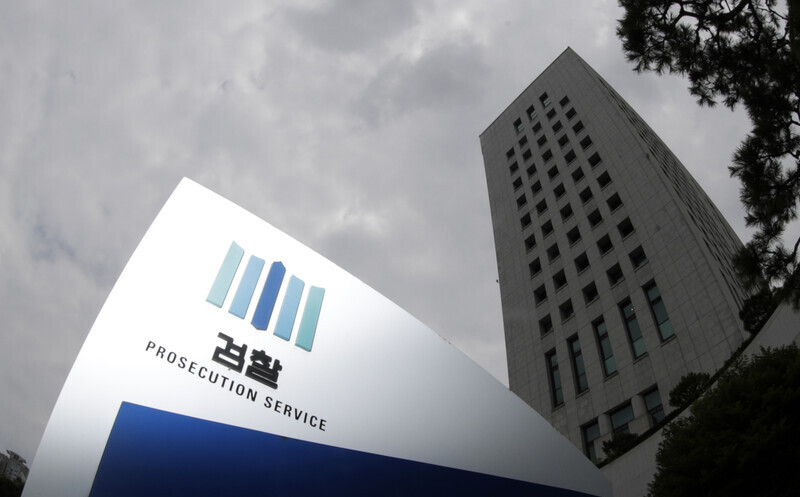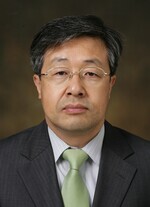hankyoreh
Links to other country sites 다른 나라 사이트 링크
[Guest essay] S. Korea’s last chance to prevent a “republic of prosecutors”


By Suh Bo-hack, professor at Kyung Hee University Law School
Korea is poised for the advent of a “republic of prosecutors” on a whole new level. That is, a nation in which the president effectively has direct control over state prosecutors. President-elect Yoon Suk-yeol has already announced plans to bring in prosecutors to investigate the incumbent administration. An era of prosecutorial domineering backed by presidential control. Whatever happens under the next administration, it will surely go far beyond what we can imagine.
The fact that we are plagued by such concerns during the transition of power is due to the weak prosecutorial reforms of the Moon Jae-in administration. The core of the reforms implemented by the current government was the establishment of the Corruption Investigation Office for High-ranking Officials (CIO) and adjustments to the investigation rights of police and prosecutors.
Breaking up certain aspects of prosecutorial power and making prosecutors subject to checks and balances can be viewed as successes. However, the limitations are clear. Prosecutors retain many of the powers they already had in addition to prosecution rights, including direct investigation rights for important cases, a monopoly on the right to request warrants, and access to personnel. This is why critics claim such reforms were nothing more than half-baked.
The biggest mistake was the failure to remove the prosecutors’ powers of investigation. Combining the powers of investigation and indictment in the same government body produces an astonishing synergy effect in the field. Investigations prompted by the prosecutors’ suspicions generally go straight to indictment, with no checks on the prosecutors’ powers of indictment. Even investigations that are wrong-headed, unreasonable, targeted, or biased typically lead to indictment.
Since there are no external controls on this process of investigation and indictment, prosecutors frequently distort or even concoct cases. If not for their unchecked power, the prosecution service could not have used fabricated evidence to frame a Seoul public servant as a spy or to pressure witnesses to give false testimony with the goal of putting a former prime minister in prison. The service can cook up cases at will by having sympathetic organizations file a criminal complaint, which provides a pretext for launching an investigation and making an indictment.
When the Criminal Procedure Act was instituted in 1954, lawmaker Eom Sang-seop raised concerns that empowering prosecutors both to investigate and to indict could lead to “prosecutorial fascism.” Now, those concerns have been borne out. There’s a reason why advanced countries keep investigation separate from indictment.
Is there anything the National Assembly can do before the formation of this mighty “prosecutorial republic”? Must it stand by and watch while Korea’s prosecutors are blindly entrusted with the fate of the nation and the happiness of the people?
What the present circumstances obviously demand is for the Democratic Party to quickly pass the bill that will separate the prosecutors’ powers of investigation and indictment. If the ruling party doesn’t institute reforms to prevent prosecutorial fascism, it would be neglecting an important duty.
Since the next president is clearly expected to veto any prosecutorial reform bill that reaches his desk, proposals to slowly discuss the reform bill amount to tolerating the emergence of a prosecutorial republic.
There will almost certainly be pushback from prosecutors, who would have to give up their privileges. Prosecutors insist that investigations into corruption would be stymied by these reform measures, but that claim does not hold water. Even now, the police are investigating corruption cases, and the CIO is investigating corruption by senior officials.
The Democratic Party has promised to discuss the need for a competent body to investigate certain major crimes and to set up such a body if necessary. The party’s position, however, is that the prosecution service can no longer be left in charge of investigations, given prosecutors’ habitual partiality, distortions, and tendency to “look after their own.”
It’s shameless for prosecutors to cling so tenaciously to their investigative powers when they were so slack in investigating manifest allegations of stock manipulation by Deutsch Motors.
Separating powers of investigation and indictment will only end investigations by prosecutors; it will not end corruption investigations by other investigating bodies. The real reason that prosecutors oppose these changes is that they don’t want to give up the power they enjoy on the job and the lucrative fees they can command after leaving the service.
Modernizing the prosecution service through the separation of investigation and indictment is a reform measure that’s urgently needed to block the creation of a prosecutorial republic and to set Korea on the path to becoming a normal state.
The separation of powers and checks and balances are fundamental values of a democratic constitution. If President-elect Yoon Suk-yeol means what he says about respecting constitutional values, he has no reason to object to the National Assembly passing a bill to take investigations out of the hands of the prosecution service.
The National Assembly needs to move beyond ideological bickering and take advantage of its last chance to modernize the prosecution service.
Please direct questions or comments to [english@hani.co.kr]

Editorial・opinion
![[Editorial] Intensifying US-China rivalry means Seoul must address uncertainty with Beijing sooner than later [Editorial] Intensifying US-China rivalry means Seoul must address uncertainty with Beijing sooner than later](https://flexible.img.hani.co.kr/flexible/normal/500/300/imgdb/original/2024/0517/8117159322045222.jpg) [Editorial] Intensifying US-China rivalry means Seoul must address uncertainty with Beijing sooner than later
[Editorial] Intensifying US-China rivalry means Seoul must address uncertainty with Beijing sooner than later![[Column] When ‘fairness’ means hate and violence [Column] When ‘fairness’ means hate and violence](https://flexible.img.hani.co.kr/flexible/normal/500/300/imgdb/original/2024/0516/7417158465908824.jpg) [Column] When ‘fairness’ means hate and violence
[Column] When ‘fairness’ means hate and violence- [Editorial] Yoon must stop abusing authority to shield himself from investigation
- [Column] US troop withdrawal from Korea could be the Acheson Line all over
- [Column] How to win back readers who’ve turned to YouTube for news
- [Column] Welcome to the president’s pity party
- [Editorial] Korea must respond firmly to Japan’s attempt to usurp Line
- [Editorial] Transfers of prosecutors investigating Korea’s first lady send chilling message
- [Column] Will Seoul’s ties with Moscow really recover on their own?
- [Column] Samsung’s ‘lost decade’ and Lee Jae-yong’s mismatched chopsticks
Most viewed articles
- 1[Editorial] Transfers of prosecutors investigating Korea’s first lady send chilling message
- 2For new generation of Chinese artists, discontent is disobedience
- 3[Photo] 1,200 prospective teachers call death of teacher “social manslaughter”
- 4S. Korea “monitoring developments” after report of secret Chinese police station in Seoul
- 5Xi, Putin ‘oppose acts of military intimidation’ against N. Korea by US in joint statement
- 6[Exclusive] Unearthed memo suggests Gwangju Uprising missing may have been cremated
- 7[Column] Samsung’s ‘lost decade’ and Lee Jae-yong’s mismatched chopsticks
- 8[Special reportage- part I] Elderly prostitution at Jongmyo Park
- 9Chun Doo-hwan arrived in Gwangju by helicopter before troops opened fire on civilians
- 10[Interview] Recalling seeing soldiers secretly burying bodies behind Gwangju Prison